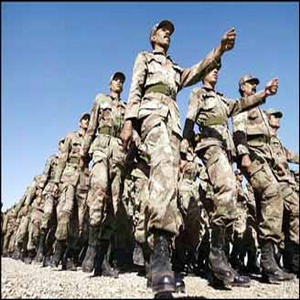On March 14, 2011, Saudi Arabia launched its own “Brezhnev Doctrine,” exercising the right to militarily intervene to prop up an unpopular governing order. In the process, the Saudis have demonstrated how little they understand their own region and their own country. Saudi rulers have made a major mistake in casting the crisis in Bahrain as a sectarian conflict in which Iran’s Shia proxies are battling a benign Sunni ruling class for sake of Persian aggrandizement. The rebelling in Bahrain, as indeed throughout the region, is about a disenfranchised and impoverished majority seeking political representation and economic justice. The proper path for Bahrain’s al-Khalifa dynasty is to renegotiate its national compact and appreciate that as the Middle East finally joins the twenty-first century it has limited options beyond a constitutional monarchy.
The aging Saudi rulers nurturing their own misconceptions and conspiracies are hopelessly behind the curve as the Arab Spring gradually suffuses the entire Middle East. The yearning for democratic reforms and economic equality cannot be repressed through police tactics in Riyadh or forceful intervention in Manama. It would be wise for Washington to have a frank and unpleasant conversation with its ally of long-standing. Too often the lure of Saudi oil wealth has caused successive American administrations to placate their truculence. The old Arab bargain whereby the state exchanges material rewards for political quiescence is no longer relevant. If the Saudi monarchy and its Sunni subsidiaries want to survive the turbulent politics of the new Middle East, they will have to opt for political modernization as opposed to offers of bribes mixed with threats of violence.
The Iranian angle is as interesting as it is intriguing. The Islamic Republic is itself beset by a democratic uprising that it has tried to contain at the risk of its own illegitimacy. The Saudi move this week could not have come at a better time for the guardians of Iran’s theocracy. Tehran will likely continue its unequivocal condemnations and portray itself as champion of democracy without actually practicing it at home. By highlighting the deficiencies of the Arab political order and Washington’s seeming passivity, the clerical state can try to capture the region’s political imagination irrespective of its own tarnished reputation. But don’t expect any regional show of force by the Iranian regime. Tehran understands that it benefits the most by limiting itself to rhetorical attacks as opposed to a direct military intervention that could allow the Saudis to portray their power play as part of the effort to contain Iran.
U.S. policymakers must grasp that the crisis in Bahrain and elsewhere in the Middle East is not about Iran and should not be seen through the prism of U.S.-Iran confrontation. The sooner Washington emancipates itself from such flawed perceptions, the sooner it will be in position to craft a new, stable regional order.
Ray Takeyh, Senior Fellow for Middle Eastern Studies



































